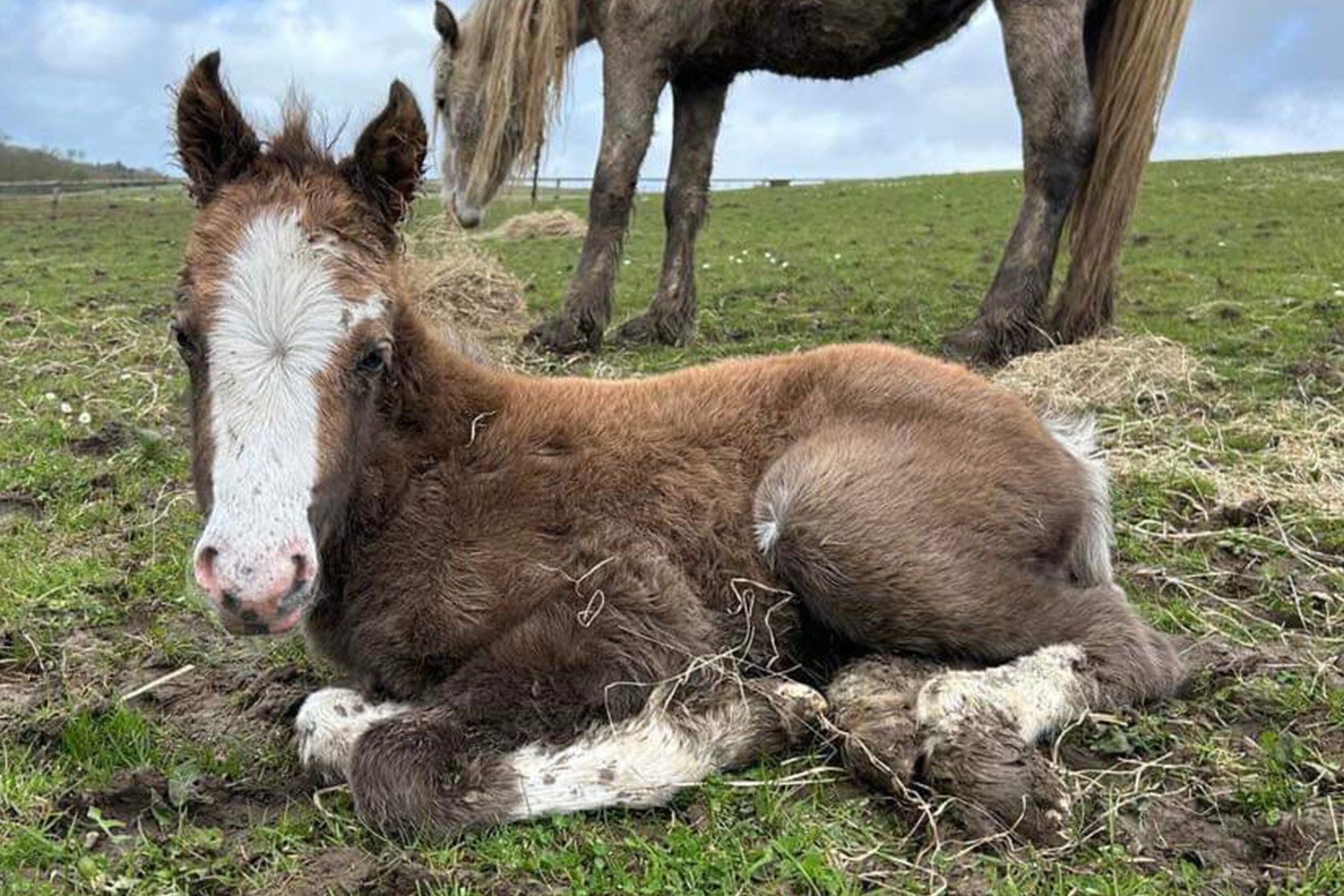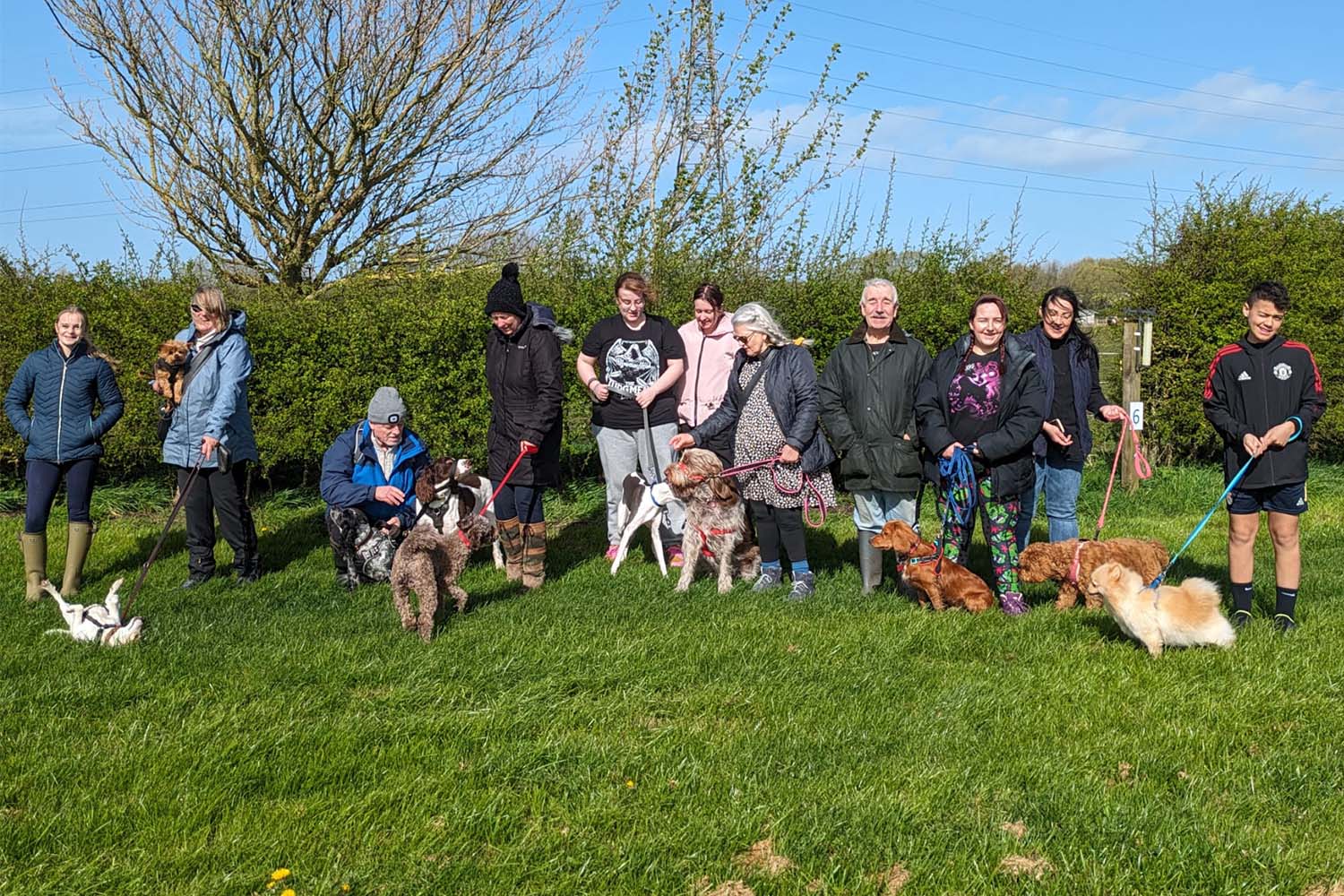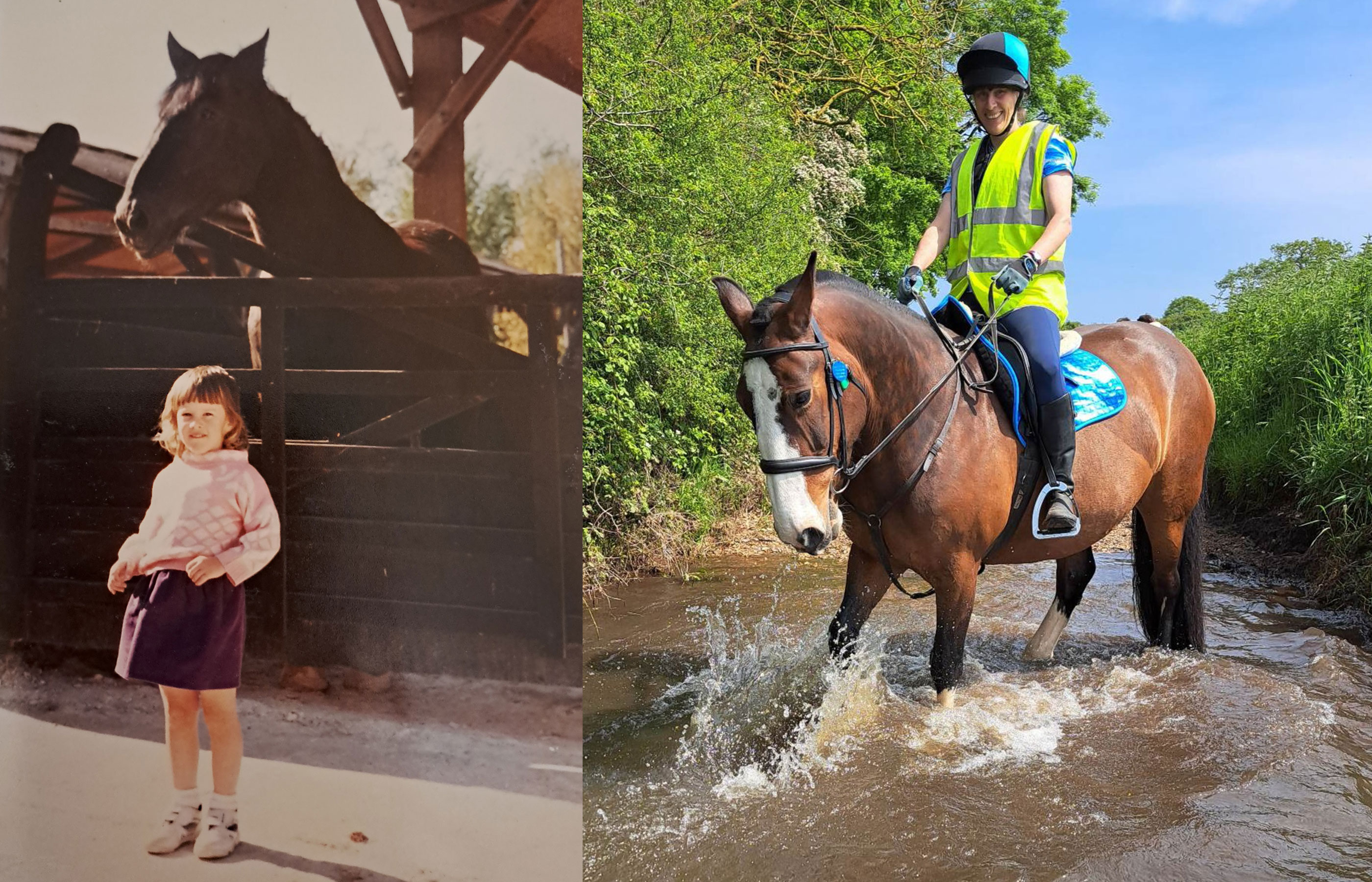First foal of the year brings joy to the team at Glenda Spooner Farm Rescue and Rehoming Centre
Posted on 11/04/2024

The first foal of the year has been born without complications at our Glenda Spooner Farm Rescue and Rehoming Centre in Somerset. Poppy, a spirited chestnut filly, was born to Parsley who arrived at the farm last October as part of a large welfare case. Despite facing numerous challenges early on, including lice, worms, and a profound fear of humans, Parsley has demonstrated remarkable resilience and embraced her role as a mother.
“Watching any foal is heartwarming, and Poppy is already showing her playful spirit. She has delighted in running around in the mud — a current challenge for us here and for many horse owners after this wet winter — and enjoying her rests after the tiring activities of being a young foal.”
Sara Jerman – Assistant Farm Manager at Glenda Spooner Farm
Poppy’s arrival is a beacon of hope and symbolises a promising future for horses that have faced neglect or abuse. We rescue approximately 300 horses annually, highlighting the critical situation in the UK where thousands of horses are in need of homes due to overbreeding. In light of this, we launched a “Do You Need to Breed?” campaign to highlight the consequences of excessive breeding and encouraging responsible horse ownership. By choosing to rehome rather than breed, horse lovers can help ensure that every horse has the chance of a safe and loving home.
Visitors are welcome at Glenda Spooner Farm where they will have the opportunity to meet many of the horses undergoing rehabilitation. The farm is open to the public from 11am to 4pm on Wednesdays, Saturdays, and Sundays, providing an enjoyable opportunity to see the impact of our work first-hand.
Topics
Related News

Valentine is thriving at Glenda Spooner Farm a year after her rescue
Valentine was found in a shocking state, but is now a happy, healthy pony with a bright future ahead.

Happy Hounds Breakfast Club new at Penny Farm
Penny Farm in Lancashire launches a monthly gathering for dog lovers and their furry companions.
Recommended Blog Posts

Putting horse welfare at the centre of the political agenda in Europe
We catch up with our EU and International Public Affairs Officer, Sandra Zafra, after her recent trip to Strasbourg.

“When I grow up, I want to work here”
This is something we hear from our younger visitors all the time and it was a dream that came true for groom Lorraine.

Retraining to build trust and increase confidence
We catch up with Belwade Farm groom Kirsty, to find out more about Clover’s story.
Enjoy reading stories like this?
Join over 65,000 other horse lovers and sign up for our email newsletter

Join over 65,000 other horse lovers and sign up for our email newsletter
Sign me up now